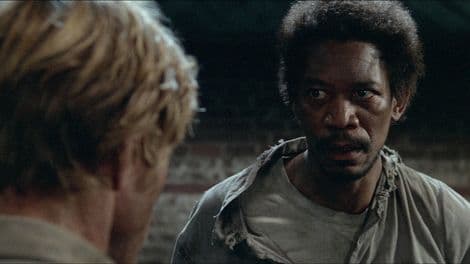Ever watched a movie that made you think? If yes, you may have found a cinematic puzzle box: 'Predestination'. This 2014 film from the Spierig brothers isn’t your typical action movie. It's a complex exploration of destiny, identity, and paradoxes. You will reflect on it long after it ends. Forget popcorn movies; this one requires mental focus and possibly a flowchart.
Movie Overview: A Time-Traveling Conundrum
At its core, 'Predestination' tells a tale about a time agent on a mission. His goal is to stop a bomb attack in New York City. Sounds easy, right? Wrong. It’s not a simple chase. The story immerses us in an alternate 1960s with advanced space travel. Picture Mad Men-style suits mixed with Star Trek tech.
Meet the Players in This Temporal Tango
The film features a strong cast. Ethan Hawke plays the time-traveling agent wrestling with his missions and identity. Sarah Snook shines as "The Unmarried Mother," later known as Jane, whose life story is unique. Noah Taylor as Mr. Robertson acts from the shadows, directing events with a mysterious purpose.
Unpacking the Plot: Missions, Bartenders, and Bombers
Our protagonist works for the Temporal Bureau. Think of them as time cops, keeping history on track. He isn’t just running errands through time; these missions come with serious consequences. The movie starts with his final mission: catch the infamous "Fizzle Bomber" in 1970.
From Time Cop to Bartender: An Agent's Disguise
To fit in 1970s New York City, our agent disguises himself as a bartender. Picture smoky bars and dim corners. He meets "The Unmarried Mother," a customer with a gripping tale. She writes confession articles under that name. This chance meeting ignites the film’s intricate plot.
A Fateful Conversation and a Time-Leaping Duo
The bartender and "The Unmarried Mother" share a conversation that drags them deep into identity, fate, and time itself. They embark on a mission to stop the Fizzle Bomber. But, as always in time travel stories, nothing is what it seems. Their partnership begins a web of paradoxes.
Gunfights and Shattered Minds: The Price of Time Travel
We see early on that time travel is dangerous. A failed mission in March 1975 leads to a violent shooting while he tries to stop a bombing. This isn’t slick action; it’s brutal, exposing the toll of bouncing through time. His mind begins breaking from years of distortion. This was essential for an eerie truth: he becomes the very threat he is trying to stop.
Becoming the Fizzle Bomber: A Twisted Fate
Pushed by constant jumps and fragmented memories, the agent turns into the Fizzle Bomber. His twisted logic claims bombings prevent worse disasters in other timelines. This warped heroism emerges from a mind shattered by time travel. The lines between hero and villain blur, highlighting moral ambiguity at the story’s heart.
A Confrontation with Self: The Ultimate Paradox
As the climax builds, the agent faces the Fizzle Bomber. In an unexpected showdown in a laundromat, he completes his mission. He kills the Fizzle Bomber. However, this victory feels far from winning. It’s grim and paradoxical because he has killed his own older self, revealing the film’s driving theme: predestination's inescapable loop.
Character Identity and Relationships: Layers of Self
'Predestination' goes beyond time travel; it explores identity deeply. The climax detonates a character bomb. As the end approaches, we see rapid images – Jane/John. This hint suggests more than mere gender transition.
The Unmarried Mother's Secret: A Biological Impossibility?
The film reveals an impossibility: Jane's pregnancy has deeper origins than unexpected motherhood. It's unveiled that Jane and John conceived the baby together. This twist isn't just a surprise; it's vital for understanding their linked journeys.
The Trinity of Self: Jane, John, and Baby
In a temporal recursion moment, the agent perceives the loop after hearing Jane's tale. He takes Jane’s baby – born from her self-fertilization as John – and travels back to 1945, leaving the child at an orphanage in Cleveland. This act completes their circle. Jane, John, and their baby are all one person caught in a predestination paradox.
The Agent's True Nature: Another Layer Unveiled
Just when you think you’ve grasped every twist, Mr. Robertson reveals more. The agent himself is Jane/John too. This isn’t merely about one person living a complex life; it's about one person playing every key role in their life narrative. The agent, the bartender, John, Jane, and the baby represent facets of one entire existence.
Fizzle Bomber: The Older, Broken Self
The Fizzle Bomber fits into this intertwined identity web. He’s not just an antagonist; he’s an older version of the agent. The character portrayed by Hawke and the terrorist he hunts exists at different points on the same timeline.
Mr. Robertson: The Orchestrator of Destiny
Behind all manipulations stands Mr. Robertson. He isn’t just the boss; he designs the agent's life itself. Robertson orchestrates the conception, birth, and death of the Agent. He views him as his creation, crafted for specific purposes. Robertson raises questions about free will against determinism: is the agent truly controlling his fate or just part of Robertson's plan?
Key Plot Twists and Paradoxes: Navigating the Labyrinth
If 'Predestination' feels complex, that’s accurate. The film thrives on twists and paradoxes that challenge our linear time understanding. The biggest twist isn’t merely a reveal but realizing Jane/John is every major character.
The Ultimate Identity Revelation: Everyone is Jane/John
'Predestination' demands multiple viewings to capture its depth. Confusion dissipates when you grasp its central truth: every key character is merely different versions of the same person. This is not just a plot mechanic; it's the film's philosophical statement on identity.
Self-Fertilization: The Unconventional Origin
The baby’s origin is unconventional indeed. Born from John’s self-fertilization, this existence mirrors the plot’s temporal paradoxes. It isn’t just shocking; it underlines Jane/John’s self-contained narrative.
The Predestination Paradox: A Closed Temporal Loop
The film's title signifies its essence. The "predestination paradox" serves as the story's backbone. It's a self-sustaining loop.
Time and cause create a loop without start or finish. In 'Predestination', this idea is clear. An agent acts in the past not to change it, but to fulfill it.
The Orphanage Scene: A Circle Completed
The agent steals Jane's baby and takes it to a Cleveland orphanage in 1945. John also steals the baby and does the same. They perform identical actions as different versions of themselves. This solidifies the loop of predestination. The baby is not just any child; it is the young Jane, starting the cycle. This scene shows predestination explained.
Themes: Interpreting Deeper Meanings
'Predestination' serves more than thrills. It digs into time, fate, and free will. Time travel serves as a view for deep philosophical questions.
Exploring Time Travel: Beyond Gadgets
The movie uses time travel to show reality, identity, and choice. Manipulating time isn't about fun tools; it brings real thoughts on causality. The film posits a question: if you returned to the past, could you change things? Or are you destined to play your part?
Destiny versus Free Will: An Ongoing Debate
The film sharpens the old destiny versus free will argument. Characters follow a planned course with limited choices. However, it questions this view. Are they mere puppets? Do they hold any real agency? This conflict adds depth to the story.
Faith and Predestination: A Theological Connection
The title suggests predestination, a major theological theme, especially in Christianity. It states events are planned by a higher power, often God, determining life or death of souls. In religion, predestination implies that mercy isn’t earned. It reflects on divine will instead. Characters act from a script beyond their control. This viewing shifts divine will to fixed laws of time and cause, leading to questions about God's plan and personal choice across belief systems like Christianity, Islam, and Hinduism.
Religious Views on Predestination: An Overview
Many faiths tackle predestination differently. Christianity holds diverse views: Augustinianism, Calvinism, and Roman Catholicism teach varying doctrines on this idea. Augustinianism and Calvinism focus on God's choice for salvation, not human deeds. Arminianism counters with emphasis on free will. In Islam and Hinduism, similar struggles exist, reflecting humanity's need to grasp fate. 'Predestination', as a movie, explores these themes through a sci-fi lens.
Reception: Critics Praise, Box Office Disappoints
Though thoughtful and intricate, 'Predestination' didn’t excel at the box office. It received critical acclaim and audience love. Critics praised its inventive and mind-bending plot. Reviews on Rotten Tomatoes highlight its cleverness and meaningful nature. It became a cult classic for its ability to challenge viewers.
A Must-Watch for Sci-Fi Lovers
Should you see 'Predestination'? Definitely. It dives into time travel, expanding the genre's appeal. It entertains and stimulates thought, inviting deeper engagement with its themes. If you enjoy films prompting discussions long after, 'Predestination' is essential.
Box Office Outcome: A Financial Setback
Despite success with critics, 'Predestination' struggled financially. It "flopped," meaning its complex plot may not suit mainstream tastes. Its box office fate doesn’t lessen its creative value for those who cherish thoughtful cinema.
Critical Acclaim: A Film Highly Regarded
While box office numbers fell short, 'Predestination' gained critical praise. Reviewers applauded its creativity, acting, and complex narrative. Strong ratings affirm it as a respected work of intelligent science fiction.
The Fizzle Bomber: The Core Anomaly
The Fizzle Bomber drives the plot as both a threat and a key paradox. Knowing who he is aids in understanding the film’s complexities.
Fizzle Bomber's Identity: The Agent's Reflection
The Fizzle Bomber isn't simply an antagonist; he is an older version of the agent. This revelation is vital. The agent pursues not just a terrorist but his future self. This twist emphasizes the story's closed loop and cyclical existence.
Motivation: A Contorted Salvation
The Fizzle Bomber acts not from evil but from distorted duty. He thinks his actions save lives in other futures. His reasoning stems from a broken mind shaped by time travel experiences. He views himself as a necessary evil for a greater cause.
Laundromat Climax: An Ironic End
The final showdown brims with irony. The agent’s task is to stop the Fizzle Bomber; ultimately, he faces and kills his older self in a laundromat. This self-destructive act closes the predestination loop, fulfilling his past obligations.
Rating: Parental Guidance Suggested
Before watching 'Predestination', note its content rating. It holds an R rating for key reasons, which may not be suitable for all viewers.
R Rated: Mature Content
'Predestination' earns its R rating mainly due to violence and sexual content. Parents must note that it includes “violence and [a] sex scene.” While not gratuitous, such moments are essential to the narrative and its mature themes.
Ideas Over Action: A Film for Thinkers
Even with violence and adult themes, 'Predestination' focuses "more on ideas than action." It prioritizes plot twists, philosophy, and character growth over loud scenes. While some moments are intense, the film’s heart lies in intellectual appeal rather than high-octane thrills.
Religious and Philosophical Thoughts: Echoes of Meaning
The title 'Predestination' flags the film’s exploration of essential religious concepts. The story isn’t simply sci-fi; it’s an examination of theological arguments.
Predestination: A Theological Viewpoint
In theology, predestination expresses that all events are set in advance by a divine force. This notion raises crucial questions on free will and fate's nature. The movie utilizes this theological basis to question similar ideas within its time-travel context.
Controversy and Theory: Diverse Views
The doctrine presents theological debates with varying interpretations across religions. Some emphasize God's control while others stress human choice in salvation matters. 'Predestination', the film, reinforces these tensions without providing definitive answers, enhancing narrative complexity.
Religious Perspectives: A Range of Beliefs
Predestination themes arise in many faiths. Christianity, Islam, and Hinduism explore fate concepts intertwined with divine will and human lives. Within Christianity, Augustinianism, Calvinism, and Arminianism grapple with notions of predestination. Islam and Hinduism also engage fate within their beliefs. 'Predestination' explores these intricate religious threads.
Thought adds layers. It gives depth to the time-travel story. The narrative raises bigger questions about destiny and choice.
Jane the Virgin: A Brief Note
When talking about "Jane," the mention of "Jane the Virgin" is inevitable. They differ greatly in tone and theme. Yet, the name link might catch some interest.
Jane's Baby in "Jane the Virgin": A Different Tale
"Jane the Virgin" tells a more typical origin story for a baby. Jane's child has Rafael Solano as the father. This brings romantic drama to the plot. It contrasts sharply with the time loop in 'Predestination'.
Artificial Insemination Mix-Up: A Comedic Setup
The series begins with an improbable event: Jane Villanueva’s accidental insemination. This sparks the entire show. It mixes drama and humor in a way that's far from the complex themes of 'Predestination'.
Jane Marries Rafael: A Happy Ending
In "Jane the Virgin," Jane marries Rafael for a happy ending. The finale cleverly references its own narrative style. It blurs fiction and reality within its story. This entertaining conclusion differs greatly from the tragic arc of 'Predestination'.
Related Films: If You Liked 'Predestination'...
If you enjoyed 'Predestination', you may like other films exploring time, reality, and perception. A strong example is "Inception."
"Inception": A Mind-Bending Experience
If you want a film that challenges your mind, check out 'Predestination'. Be ready to watch it more than once for its intricate brilliance.













Responses (0 )